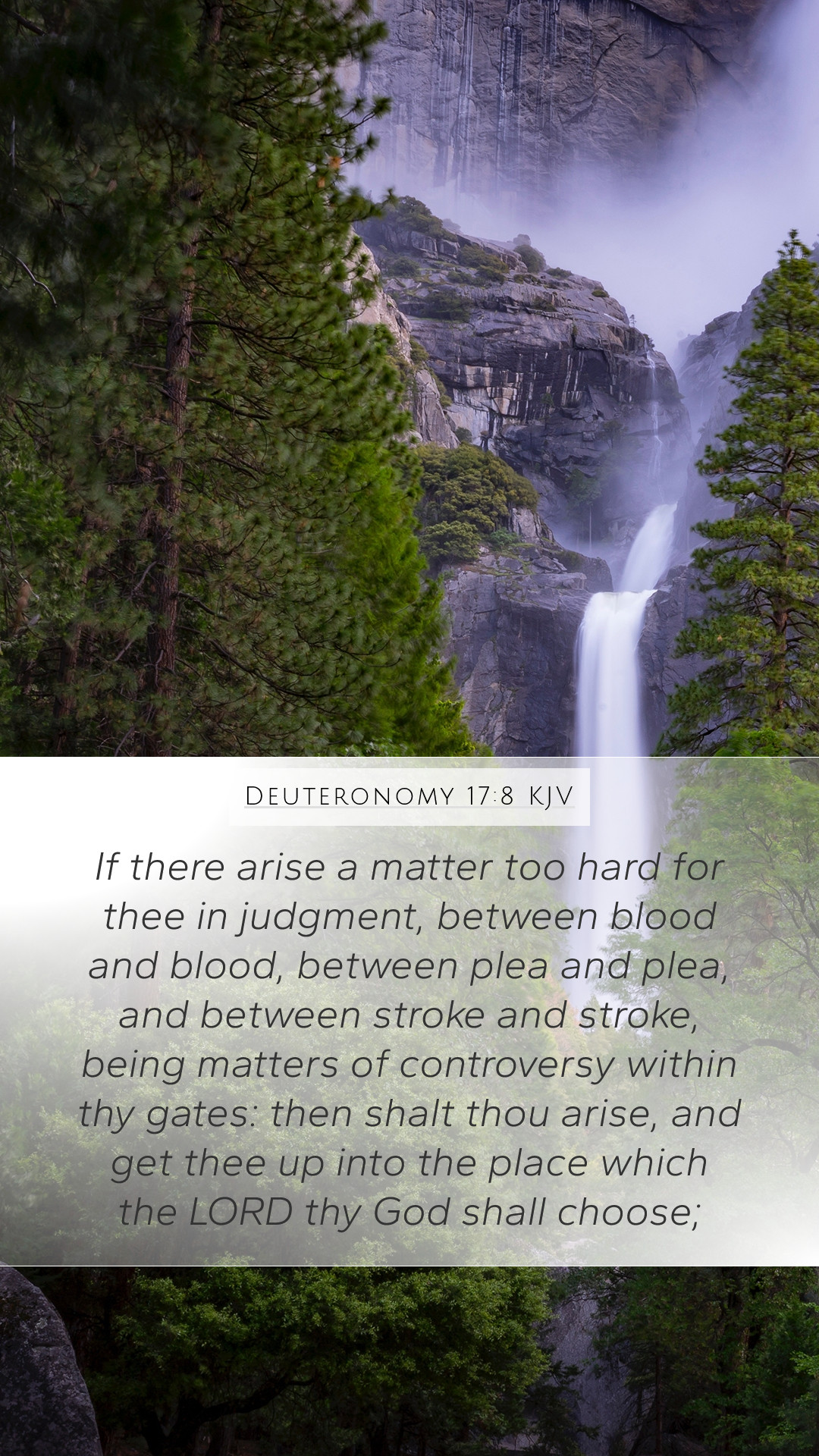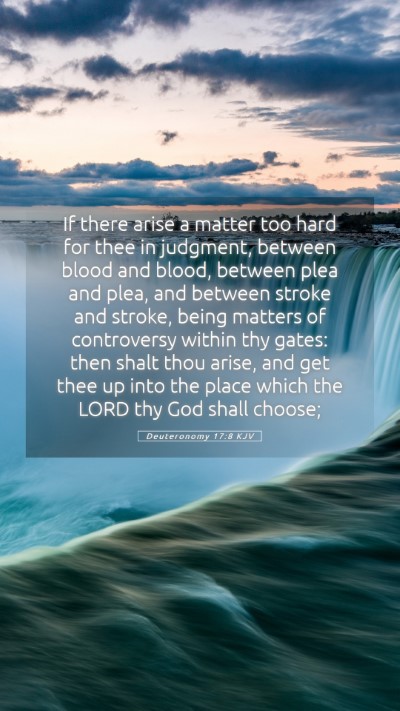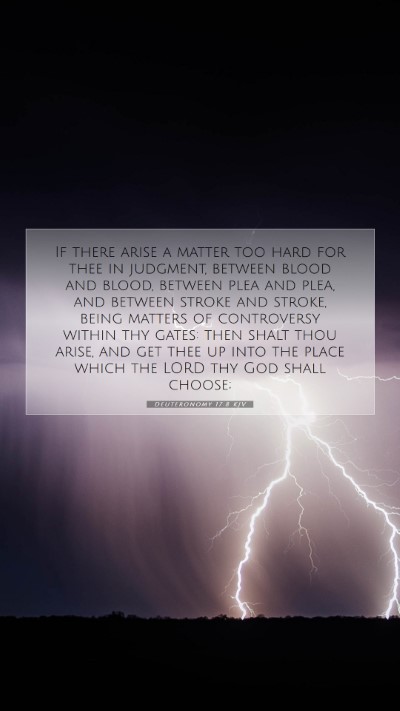Understanding Deuteronomy 17:8
In Deuteronomy 17:8, the Scripture presents an important directive regarding handling difficult cases of judgment within Israelite society. This verse encapsulates significant themes of divine justice, leadership, and the pursuit of truth.
Scripture Text
“If there arise a matter too hard for thee in judgment, between blood and blood, between plea and plea, and between stroke and stroke, being matters of controversy within thy gates: then shalt thou arise, and get thee up unto the place which the Lord thy God shall choose.” (Deuteronomy 17:8)
Verse Meaning and Significance
This verse addresses the complex realities of life—situations that challenge the fair administration of justice. The command underscores the need for reliance on God's chosen representatives to adjudicate matters that exceed human understanding and ability. Below is a deeper exploration of its significance derived from respected public domain commentaries.
1. Judicial Authority and Divine Guidance
According to Matthew Henry, this scripture highlights that when individuals face cases beyond their capacity—particularly revolving around human life and relationships—they ought to seek divine wisdom. It reiterates the belief that true justice emanates from God’s will, and His representatives are entrusted to deliver it. This reflects a broader theological understanding that believers should not solely rely on human judgment but look to the divine for guidance in critical life issues.
2. The Role of Religion in Justice
Albert Barnes emphasizes the intertwining of religious adherence with the administration of justice. The implication here is that justice within the community is not just a social construct but a sacred duty that reflects God's character. Seeking the appointed place signifies honoring God's established authority among His people, ensuring that judgments align with divine principles.
3. Ethical Implications for Community Leaders
Adam Clarke points out that this directive places a heavy responsibility on community leaders. When difficult moral or ethical judgments arise, they are reminded of their duty to lead with integrity and faithfulness. Leaders must guide their communities towards seeking higher wisdom rather than relying solely on flawed human judgment.
Key Themes and Insights
- Divine Authority: The necessity of seeking divine intervention and wisdom in complexities of justice.
- Community and Leadership: Emphasis on having leaders who guide in accordance with God's standards.
- Moral Responsibility: Recognition that justice must align with divine truth and ethical standards.
- Faith in God: Encouragement for believers to cultivate trust in God's provision for resolution in difficult circumstances.
Cross References
To gain a broader context and deeper understanding of Deuteronomy 17:8, consider these related Scriptures:
- Exodus 18:19-22: Jethro's advice to Moses about appointing judges.
- Deuteronomy 1:17: Instructions about impartial judgment.
- Proverbs 2:6: The Lord gives wisdom; His words provide insight.
Application in Daily Life
In a practical sense, this verse serves as a reminder to individuals and leaders alike about the importance of seeking divine wisdom when faced with tough decisions. It prompts believers to cultivate humility, recognizing that some challenges require greater insight than they individually possess.
Incorporating this understanding into everyday life can lead to healthier community interactions, fostering a culture where divine principles guide all dealings—illustrating the enduring relevance of these ancient texts.
Conclusion
Deuteronomy 17:8 is more than a historical edict; it is a timeless reminder of humanity's need for God's guidance in justice and community leadership. Engaging with this verse can enhance one's Bible study insights and promote a richer understanding of both the meaning of Bible verses and their applications in daily life.


